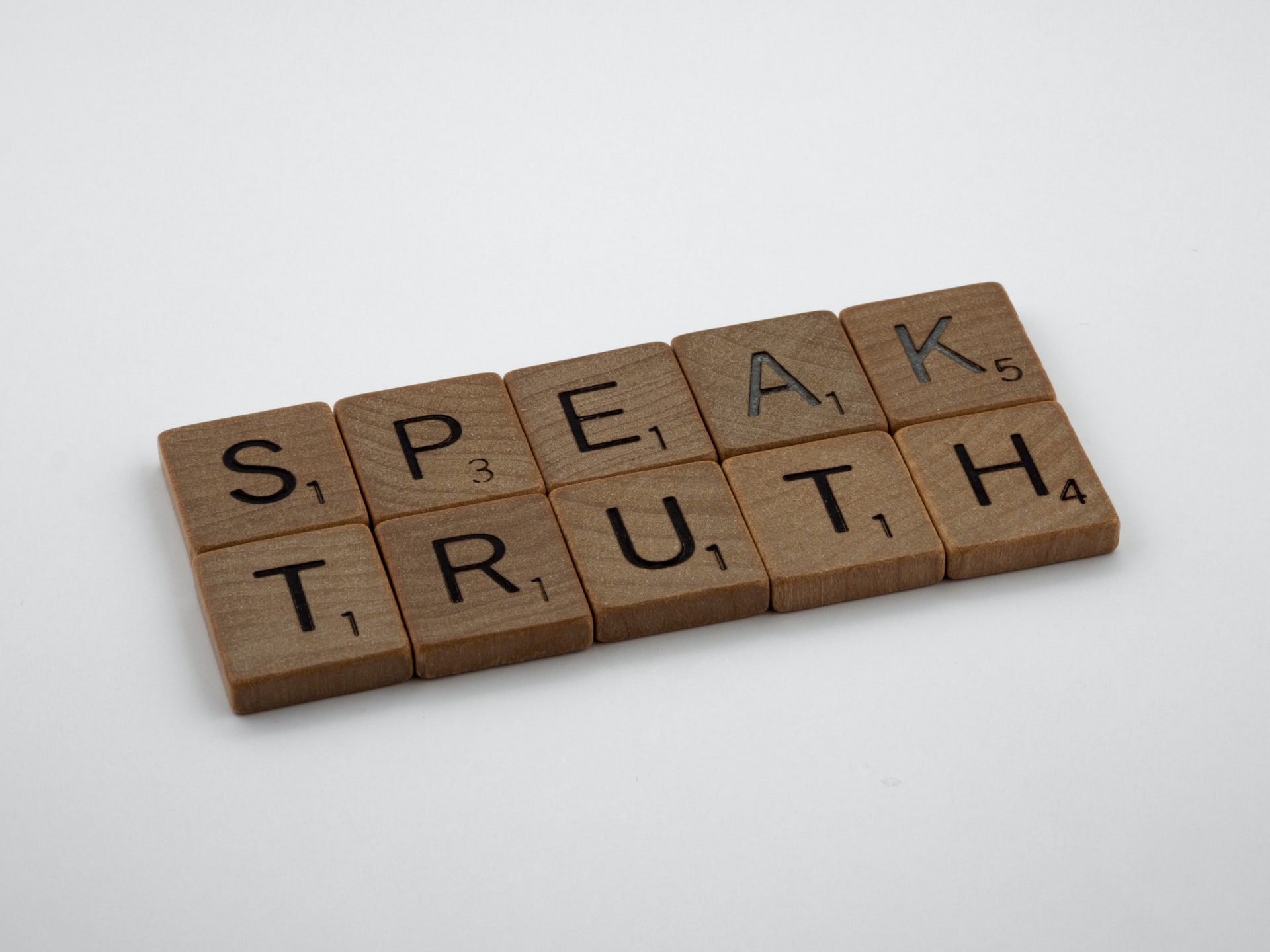Being able to communicate better will help you improve your relationships immeasurably. Not only does great communication allow people to understand your needs and know how to meet them, but it also allows you to know them in turn.
 There are very few gifts you can give someone that are better than them knowing that you really see, hear, and know them. That is something we all yearn for, but it is sadly in short supply. Unfortunately, we tend to be far more interested in being heard by others than in hearing them.
There are very few gifts you can give someone that are better than them knowing that you really see, hear, and know them. That is something we all yearn for, but it is sadly in short supply. Unfortunately, we tend to be far more interested in being heard by others than in hearing them.
With nearly four billion users around the world on various social media platforms, and those users sending over 100 billion messages via Facebook and WhatsApp alone, there certainly is no shortage of words in our world. This is to say nothing of the other social media and other platforms people use to communicate, and the conversations that we have in person with others.
Of course, there’s a difference between a large volume and quantity of something and good quality. We may believe that we are great communicators, and take our talking, texting, and listening for granted, but most of us aren’t as good at listening and communicating as we’d like to think.
One survey showed that some 96% of people considered themselves to be good listeners. The reality is that with multiple devices and conversations swirling around us, our multitasking leads us to have low attention spans and an inability to focus.
This can make our personal and work relationships frustrating as misunderstandings multiply, and we don’t feel seen and heard by the people around us. Poor communication makes for more arguments, more hurt, and a lack of safety to share our thoughts. We don’t feel understood, and that’s painful all on its own.
3 Tips for How to Communicate Better
Here are three useful life hacks for how to communicate better as a means of improving all your relationships.
Listen well
In our conversations, we probably spend more time talking or trying to come up with a response than we do truly listening to the other person. Effective listening is an all-consuming task, because it requires you to really pay attention to the  other person and what they’re saying, and not to your own thoughts or the distractions that may be around you.
other person and what they’re saying, and not to your own thoughts or the distractions that may be around you.
If you’re in a virtual meeting and you’re catching up on some emails in another window, it’s unlikely you’re really listening. Or if you’re hanging with your friend over your lunch break and your mind is on the work you have to get to soon, it’s probable that you aren’t listening well. Or if you’re talking with someone and what they’re saying is getting a rise out of you, you may not be listening well.
On that count, the Bible reminds us, “My dear brothers and sisters, take note of this: Everyone should be quick to listen, slow to speak, and slow to become angry” (James 1:19, NIV). Anger, like other strong emotions, can get in the way of hearing what the other person is saying to you.
Listening well requires paying close attention, which is one of the more unselfish acts we can perform for others. To listen well, below are a few tips:
Remove any distractions.
It’s getting harder and harder to give people our undivided attention. There is so much on the go, and we have so many expectations placed upon us, it’s difficult to slow down and just be with someone for an uninterrupted period. To create space to listen well, give people your undivided attention by resisting the urge to multitask, check your phone or look at the things going on around you.
Avoid making assumptions.
When you speak with someone, it’s easy to assume you know where this is going. What assumptions do is they make us start filling in gaps, we stop listening because we’ve already made our minds up about what we’re hearing. We think we know what was being said, but we’re probably paying more attention to the script in our head than the person in front of us.
Suspend any judgment and allow yourself to remain open to what is being said. This is even more important if you’re hearing one side of an argument between people. Proverbs 18:17 (NCV) says, “The person who tells one side of a story seems right until someone else comes and asks questions.” It’s a good principle to not make assumptions or judgments until you hear both sides of an argument.
How to Communicate Better: Be curious and ask questions.
Hand in hand with the above, when you think you know the deal, you stop listening and start readying yourself to dispense your wisdom. You may miss the nuance in what is being said and learn very little. If you aren’t curious and willing to ask clarifying and follow-up questions, not only will you learn very little and probably miss what is being said to you, but it will likely be a heavy exercise in trudging through a conversation.
When you clarify things, you make sure on you’re on the same page. There’s nothing quite so frustrating as having a conversation with someone and then finding yourself at loggerheads because one or both of you simply didn’t understand what the conversation entailed.
Being curious about the other person also means avoiding focusing on yourself. The conversation can be about what’s going on in the other person’s life without it having to be about a similar thing that happened to you the other day. Yes, what happened to you did happen, and it’s similar to what happened to your friend. But right now your friend is talking about how they experienced their thing, and not about you and your thing. Not everything has to be about you.
Silence is golden.
A flurry of words can stifle communication and true understanding. Sometimes, people need a moment of quiet to go a little deeper and share their thoughts. That may be the case with more introverted people, who need some room to process before they share themselves. Instead of thinking about silence as awkward, embrace it as a necessary gap to allow the other person to say more.
Keep your eye on body language.
Communication involves our words and our whole bodies. We are embodied beings, and what we mean is conveyed by more than our words by themselves – our posture, facial expressions, tone of voice, and whether we are maintaining eye contact – all of these add to the whole picture.
Listening well entails listening to what is vocalized, but also to what’s not being said through words but through the body. Your own body language also matters. Your body language may communicate that you’re bored, distracted, or some other emotion that derails what the other person is trying to say.
 Care about people
Care about people
It may go without saying, but to be a better communicator requires that you care about the people with whom you are communicating. Listening to people well, in the manner described above, is hard work. It’s unlikely that you’ll put in that much hard work for people you care nothing about.
Also, there’s no substitute for genuine concern, as that will fuel your curiosity about them and their concerns. You may not be the most concise communicator, but when you show real empathy and concern for others, that goes a long way in helping you not only hear people but for them to feel heard.
Be honest
Part of why communication with other people can be so complicated is that we are often tempted to misrepresent reality. Sometimes we lie quite deliberately to put our best foot forward, to avoid embarrassment, to seem more in control than we are, to come off looking intelligent, and for many other reasons.
In other situations, we lie to ourselves and find it hard to strip ourselves of those self-delusions. So, you might think you are a generous and empathetic person, but your behavior doesn’t support that claim.
At other times, we shade the truth ever so slightly because we believe it will smooth things over in a relationship and help to avoid conflict. While being honest to a fault can cause trouble – because not everything that we think and feel ought to be broadcast to the world – we do need to be open and sincere with others.
It may be tempting to conceal our true feelings about something or pretend that things are okay when they are not, but that is only a recipe for hurt, frustration, and resentment.
Being honest, assertive, and clear with the other person is part of how to communicate better, and you can avoid misunderstandings or having boundaries violated unawares. When other people recognize that you shoot straight, that will make you a more effective communicator because they know you mean what you say, and there are no hidden layers or shades of meaning for them to plumb to get to what you ‘really mean’. Honesty and sincerity are hard, but they can simplify our communication considerably.
Do you need individual tips on how to communicate better? You can meet with a Christian counselor for one-on-one coaching in improving your listening skills.
“Texting”, Courtesy of Malte Helmhold, Unsplash.com, CC0 License; “Secrets”, Courtesy of Saeed Karimi, Unsplash.com, CC0 License; “A Hand Up”, Courtesy of Austin Kehmeier, Unsplash.com, CC0 License; “Speak Truth”, Courtesy of Brett Jordan, Unsplash.com, CC0 License







